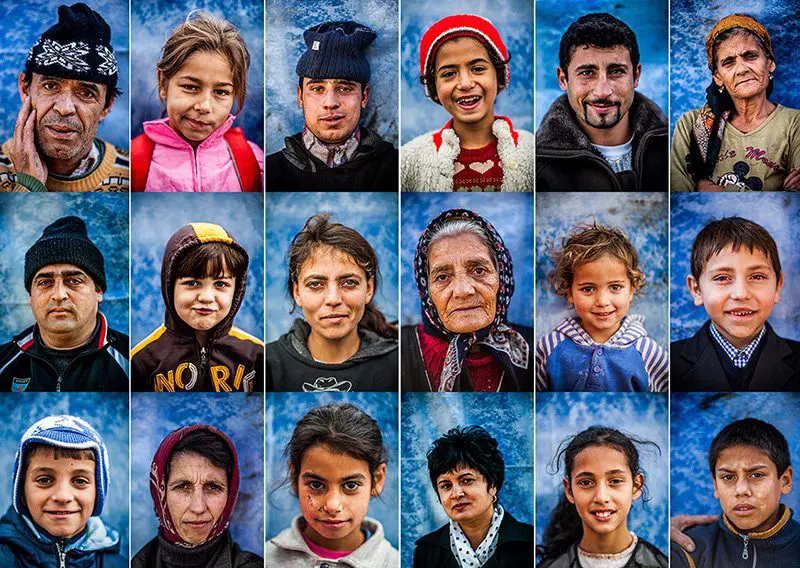The know-how center for alternative care for children, NBU, shared an article about the ways in which the topic of deinstitutionalization is related to that of the situation of the Roma ethnic group. Symptoms of this relationship are the high share of Roma children placed in residential services and the high share of parents from Roma families with whom abandonment prevention specialists work. Although there are no official statistics on the predominant presence of Roma children in the services, many of the social workers interviewed by the NHC were adamant about this fact.
What maintains the high number of Roma children and families in residential services?
This is a question of the system’s ability to meet the specific needs of Roma families. The question is also about the ability of our society to integrate and support this extremely vulnerable social group. The deepening marginalization and impoverishment of the Roma are problems imposed on the child protection system. However, it does not have the necessary resources, support and training.
What is the key mechanism for the problems?
The NHC study showed that one of the key and at the same time invisible mechanisms for reproducing these problems is the numerous discriminatory practices that permeate the child protection system, the workplace, the health and education system and are part of the everyday life of the Roma ethnic group. . They lead to the systematic social exclusion of children and parents of Roma origin. According to one of the co-researchers of the NHC of Roma origin – “the first, the main thing is discrimination in our country.”
What do Roma children and parents share?
Quotes from the interviews were selected, which illustrate the extent and ways of spreading discriminatory practices that support the problems in the social sphere.
• Employees in the children’s rights system discriminate. Apart from violating children’s rights, this is also a barrier to integration, for which trust between professionals and clients is the basis.
At home they did not stop insulting us – “dirty gypsies”, “dirty gypsies”, “abandoned gypsy”. What if we are gypsies, we are people… That’s why I ran away from home, but they brought me back and I started to be afraid. I’m scared all the time, I’m shaking and that’s why I’m taking medication, I can’t stay calm. A 16-year-old Roma woman
• Discrimination against Roma children in the adoption process is one of the main obstacles to deinstitutionalization.
The problem is that Roma children are unwanted for adoption. If we break this barrier and start adopting our children here, we will largely solve the problem of institutionalization. The other day we had another case – they don’t want it because – a very nice child, wonderful, but very mulberry. Even I have heard the phrase “A Vietnamese, a Negro, but not a Gypsy.” A representative of the children’s rights system
Parents have reported numerous cases of discrimination at school, in the workplace, in public places such as hospitals and restaurants.
• The school discriminates.
At school I had a lot of problems with young people because I was the only one there who was blacker. Because there were only girls and a lot of boys came to school. Threats, insults, shouted “Hey, gypsy, we’ll make you soap. What are you doing here at this school? Lots of harassment, they had to get me out of the other entrance. And they had to move me to another school. Father of one child
• The workplace discriminates
One of the things is discrimination, for example, a factory does not accept Roma. There was such an ad on the internet a year or so ago. I worked with this company and I even talked to the boss – why not have Roma in the factory? They hate them… I can’t assimilate it. There is no such thing abroad. Father of two children
• “Wherever we go – discrimination”
Wherever we go, whether in a store or in a restaurant, the attitude is as if we are the last hole in the kaval, the biggest miserable people… They don’t pay any attention to us, they behave badly, they don’t respond with a good tone, they raise their voice. Sometimes, when we go to a restaurant, they serve us, they try to be kind, kind, but it is visible – the eyes and the face betray everything. Young Roma
• For a large part of the Roma, emigration abroad is the only way out of the discriminatory and humiliating attitude, of poverty and unemployment.
And I can safely say that in Germany, or in any other country – be it Greece, the Netherlands, Spain, etc. the attitude is very warm, the concern is very great. It doesn’t matter to them that you are not from their country. They are ready to help you in any way they can. A Roma woman living mainly abroad
What is the real solution?
Existing “solutions” doom Roma families to painful divisions between parents and children, which can jeopardize children’s development and well-being. In this way, the children’s rights system faces the effects of discrimination and needs support and resources to counter it. The scale, prevalence and, above all, the non-discrimination of discrimination against the Roma are such that they require not only the efforts of specialists, but also the development of public sensitivity and disapproval of everyday manifestations of discrimination.







